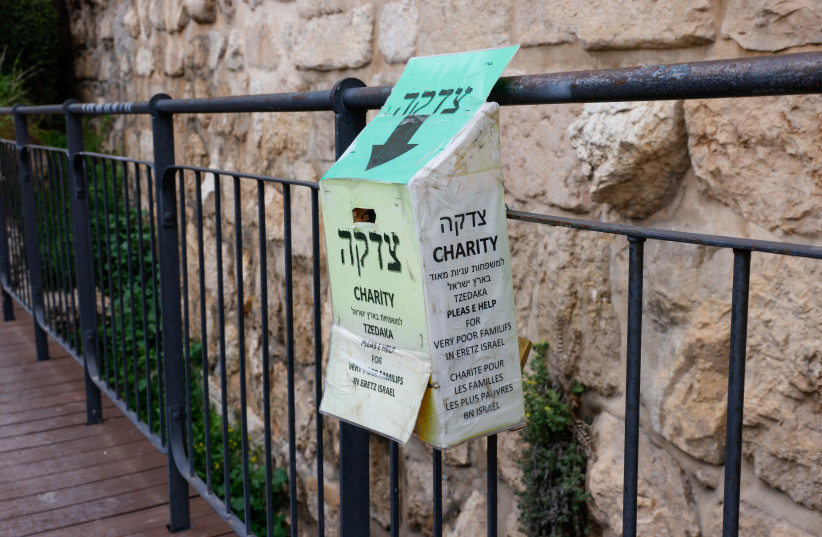On October 7 and in the months since, Israelis have rushed to help those in need in times of crisis. They have created myriad structures and systems to absorb donations and disseminate goods and services to those in need. While some actions have been on a large scale, others have been small, carried out by individuals.
No matter the size, each of these acts has a ripple effect, causing even the smallest of acts can make a big difference. Over the last few years, we have seen the impact that young people are making by starting that “ripple” effect.
At Honeycomb, we see ripple effects year-round, with a primary focus on Jewish youth philanthropy programs in the United States. Starting in 2019, under the umbrella of the Honeycomb Foundation Board Incubator, the Israel Association for Community Centers (IACC) hosted a Jewish youth philanthropy program in 15 community centers, many in underserved communities.
In what is known as the “Magshimim” program – from the Hebrew word meaning “to fulfill a dream” – teens are introduced to philanthropy through a Jewish lens with a grant-making curriculum that guides them through the philanthropic process. They learn to develop mission statements and make grant decisions, among other skills. We were aware of the program’s positive outcomes in the United States. Now, for the first time, we also have a clear picture of the influence of youth philanthropy programs in Israel.
The findings from an independent evaluation conducted by Rosov Consulting are promising, regarding the impact on the teens involved and their communities. One teen in the Magshimim program said, “I am [now] more patient and caring. We [program participants] are busy looking out for others and [are] less focused on ourselves. Before, I used to mainly see myself. I think this year has been the most meaningful in my life.”

Israelis, perhaps ironically, often find it difficult to engage in what the Diaspora might consider organized, community-based Jewish life. For the many Israelis looking for meaningful Jewish expression, philanthropy programs can fill a void. The evaluation shows that participants began to associate giving and improving the world with Jewish values and as part of their Jewish identity, which stands in stark comparison to nonparticipants, only a small fraction of whom make this connection.
Many of the teen groups also expressed passion for fundraising and volunteering as ways of connecting with people in their community who need their support. Teens’ attitudes toward philanthropy—including volunteering, grant-making, or fundraising—have improved considerably. One teen commented, “The program made me think that I want to give more of myself to society. I give something and don’t get anything in return, but the act itself makes me feel good.”
Outcomes around teens' leadership development
We also see important outcomes around teens’ leadership development and personal growth. Among many examples in this regard, program participants gain comfort leading a group and standing in front of an audience. Long-term participants are also nearly twice as likely as new participants to acquire the ability to fundraise for social initiatives and conduct research on different organizations (for the purpose of donating), and feel more empowered and aware of their community’s needs than new participants.
Lastly, it’s important to note that this impact goes beyond the individual. The communities and their community centers, which can play such a critical role in the success and thriving of young people, reap the benefits too. One Magshimim counselor comments, “The program is very special for us as a small town. Everybody knows everyone here, and our teens have a real potential to change something here. I’ve been at this matnas (community center) for five years. Before Magshimim, it was not as nice as it is now.”
MANY OTHER community center directors said that the resources associated with running the Magshimim program boosted the community centers and attracted new teens to the program. Center directors and counselors also noted the ripple effects of the program on the teens’ families, as well as on the broader community. The youth are modeling for their parents how to implement philanthropy and support local causes. Some interviewees also mentioned an especially positive impact on at-risk participants, as the program provided an outlet for their energies and a platform to channel them away from potential negative behaviors.
The last 10 months have brought so much deep trauma and pain. But they’ve also brought stories that show the good in people and the massive impact they can have when one person creates a ripple effect. These ripples become even more amplified when strong philanthropic structures are in place. We have experienced firsthand how quickly a seed of philanthropy can grow, positively influencing and empowering young people and the communities in which they live.
The writer is executive director of Honeycomb. The evaluation of Magshimim, Honeycomb’s Youth Philanthropy Program in Israel, is supported through the Honeycomb Foundation Board Incubator, generously funded by Laura Lauder and the Maimonides Fund.
